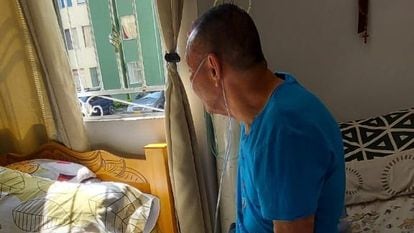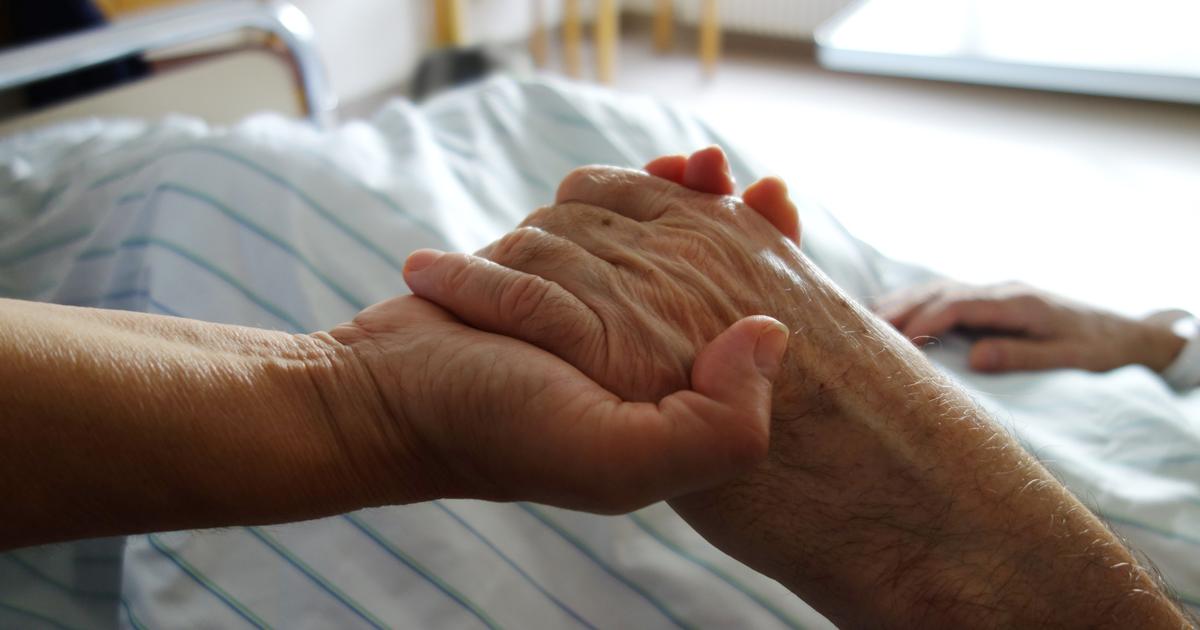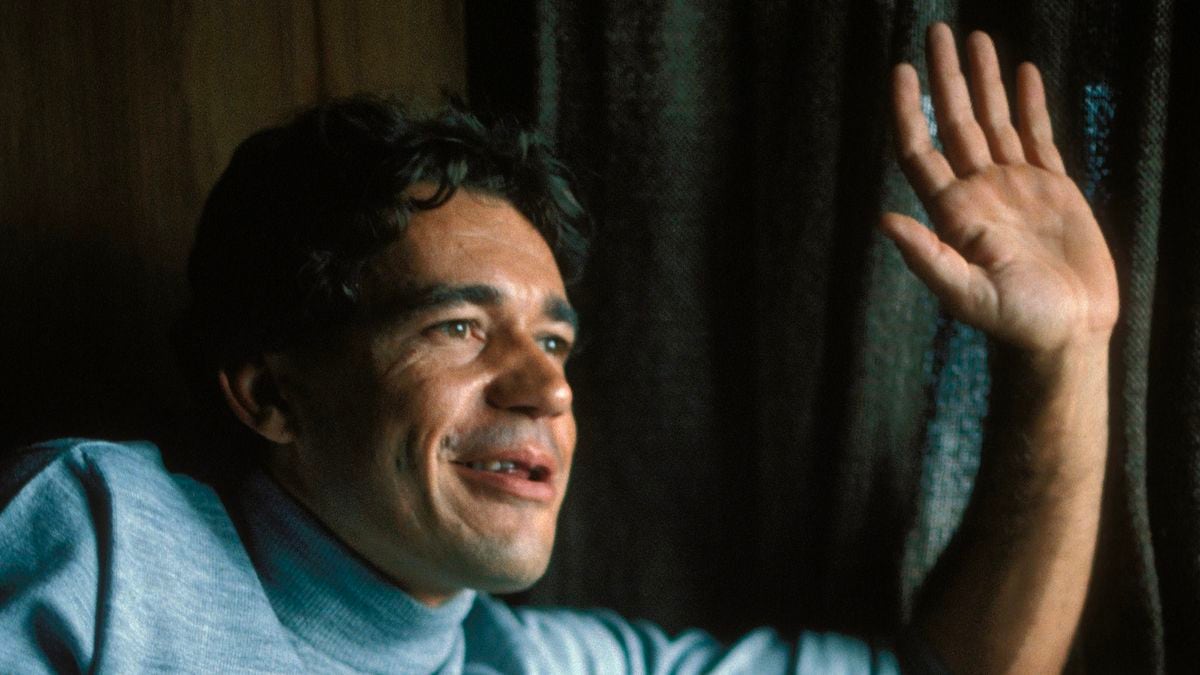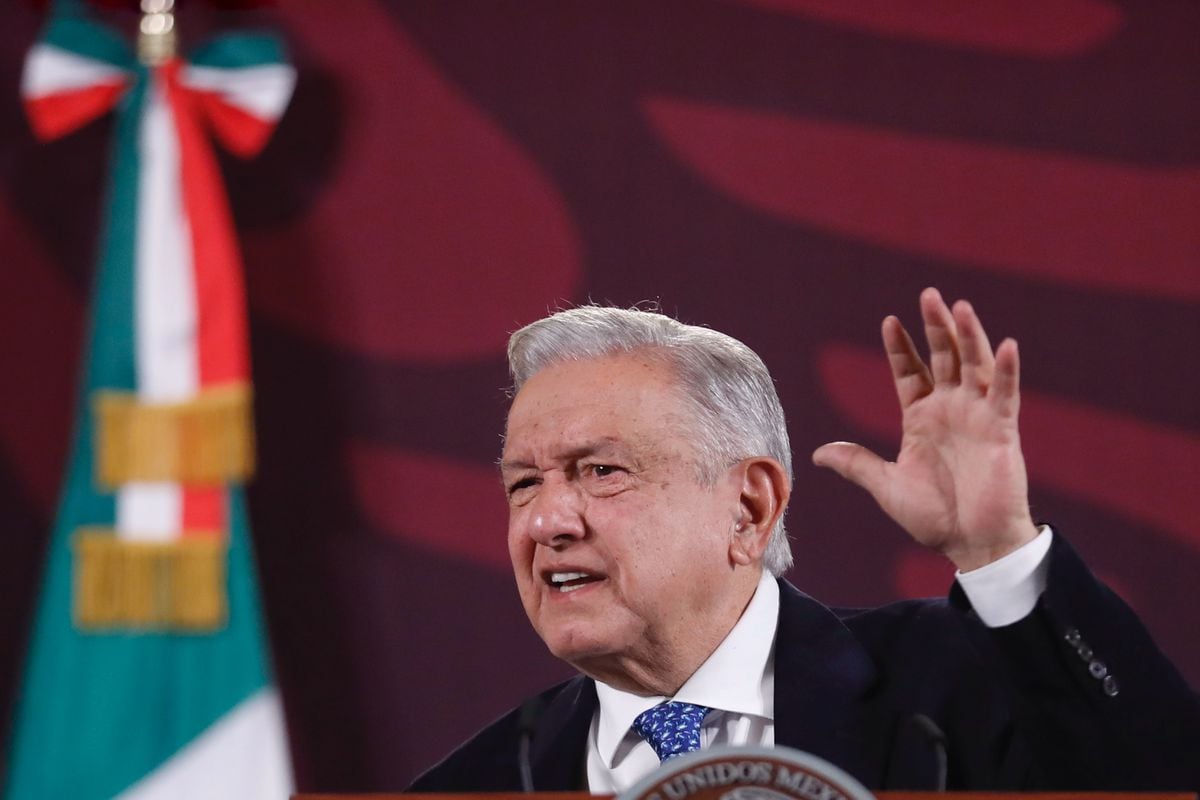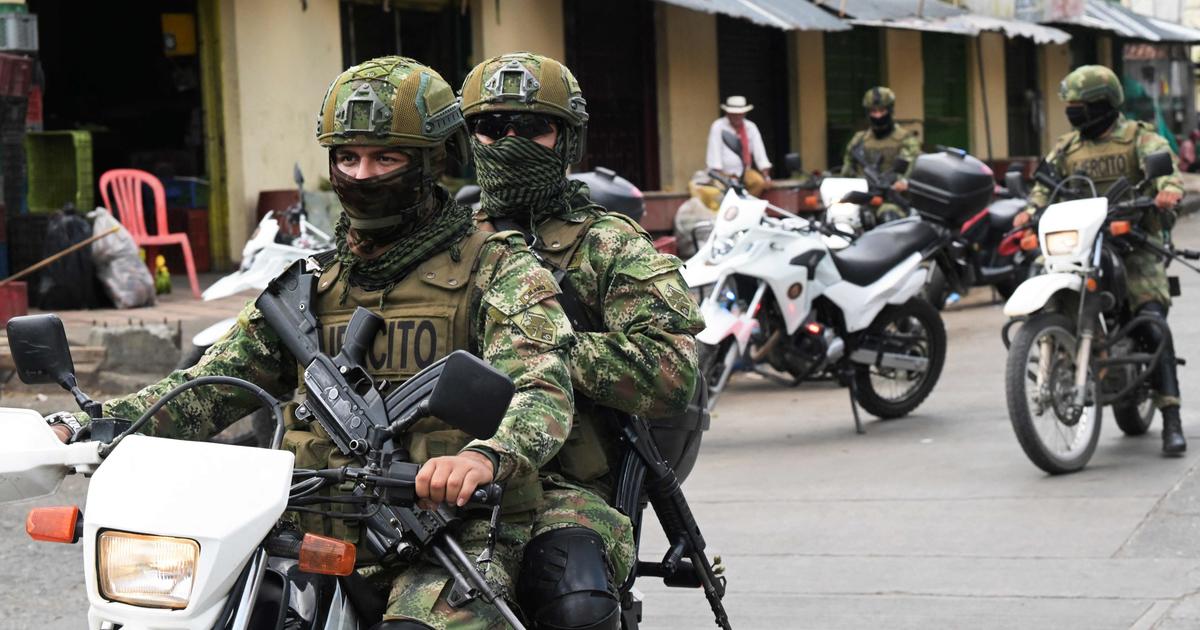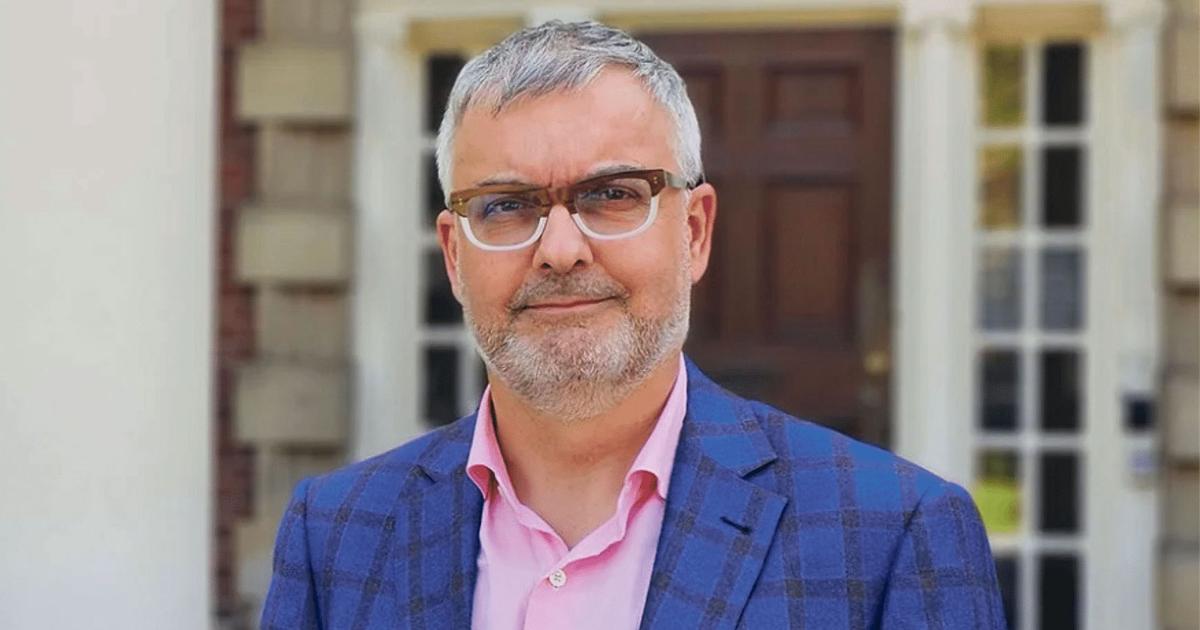Víctor Escobar fights for euthanasia authorization in ColombiaCourtesy
This Friday, January 7 at 7:00 p.m. Víctor Escobar, 60, publicly became the first Colombian to access the right to euthanasia without being a terminal patient to put an end to the pain he had endured for years.
Escobar decided that his last day would be calmer and canceled the press conference he had announced to say goodbye to the Colombians.
Instead, he met with his family and attorney Luis Giraldo and recorded a video for the media.
“I thank those who have been pending on my case, they were part of this fight so that patients like me, not terminal, but
degenerative patients, let us win this battle and open the doors for the patients who come after me and who at this moment wish a dignified death ”, said the man embracing his wife, Diana Francelly Nieto.
In Colombia, euthanasia has been legal since 2015 and so far 157 terminally ill people have opted for it. In July 2021, the Constitutional Court extended the right to non-terminal patients who had “intense physical or mental suffering due to bodily injury or serious and incurable diseases”. After suffering two strokes, and having left hemiparesis, chronic obstructive pulmonary disease (COPD), high pulmonary pressure, fibrosis, diabetes and hypertension, among other conditions, that sentence was the opportunity for Victor.
Although his case was authorized by a judge after a two-year legal battle, the country hoped that no last-minute impediment would be crossed - as has already happened on two occasions in scheduled euthanasia procedures in Colombia. "My moral is that now I can achieve it because the suffering is a lot," Escobar told EL PAÍS in November, when his case was still entangled in the bureaucracy.
Colombians still have fresh memories of the case of Martha Sepúlveda, a 51-year-old woman who had everything ready to be the first person to access that right in the country without being a terminal patient, but the clinic canceled the procedure two nights before. That happened in October 2021 and generated a national debate that alienated the woman from the press: before her scheduled euthanasia was canceled, a television report had been broadcast in which she spoke of her decision to die and the interview was supposedly used to deny you the procedure. Finally, two weeks later, a judge in Medellín ordered the clinic to reschedule with Sepúlveda the day and time of his euthanasia.
"Victor will become a reference for those who seek the freedom to tell pain no more," said Luis Giraldo of his client in a letter he read publicly and amid jokes from Escobar.
"What you have experienced is experienced by many on a daily basis who cannot accept their condition or reality and prefer to live in the pain of being singled out in a society that has yet to mature."
Since 2020, Escobar had asked the Empresa Promotora de Salud (EPS) for euthanasia, but it had been denied by it considering that he was not in the terminal phase.
Last September he asked for it again under the new court ruling, but his doctors told them that they were not clear on how to activate the euthanasia procedure.
At the center of the discussion is the absence of regulation and the legal uncertainty that some health providers argue.
"That is why the debate must be on the national agenda until Congress regulates it, because there is legal uncertainty, many do not do it because they say there is no law, although the Court has made several sentences endorsing the right to die with dignity," he told this newspaper the representative to the Chamber Juan Fernando Reyes Kuri, one of the speakers of projects on euthanasia.
With the shirt on
Victor's case was tangled in that legal tangle for a time.
His lawyer filed a lawsuit and a Cali judge ordered Coomeva, the health provider, which should "grant the constitutional protection of the right to die with dignity", to hold a new medical committee to evaluate the man's case and within a period of 15 days, if he persisted in his decision, carry out the procedure.
But the committee of the clinic that should practice euthanasia said that Escobar did not accredit the conditions of a terminal illness "nor the existence of a medical condition incompatible with human dignity capable of producing intense suffering."
And the health promoting entity challenged the first instance ruling.
The case reached the Superior Court of Cali, which found a judicial error that returned the process to the judge. Thus, at the beginning of December, the same court ordered the health company to form a new scientific committee and coordinate with the patient the date and time of his death. And it went further. "It is clarified that the composition of the committee is not to decide the relevance or not of euthanasia, but to accompany the patient in his decision to die with dignity," wrote the judge. Surprisingly, the health company did not challenge the decision within the specified timeframes.
Víctor Escobar, who was a truck driver all his life, spent his last days in the middle of the search for money and work for his wife Diana Francelly Nieto and the party for the tenth star of his soccer team, Deportivo Cali.
He had said that he planned to donate his functional organs and be cremated the next day, and that when he died he would have on the green shirt of the
sugar
team , whose players he met this year.
He dedicated a message to them: “I will leave happy with this title that they offer us.
My departure is approaching and with it my duty fulfilled as a Cali fan ”.
Subscribe here to the EL PAÍS América newsletter and receive all the informational keys of the current situation in the region

